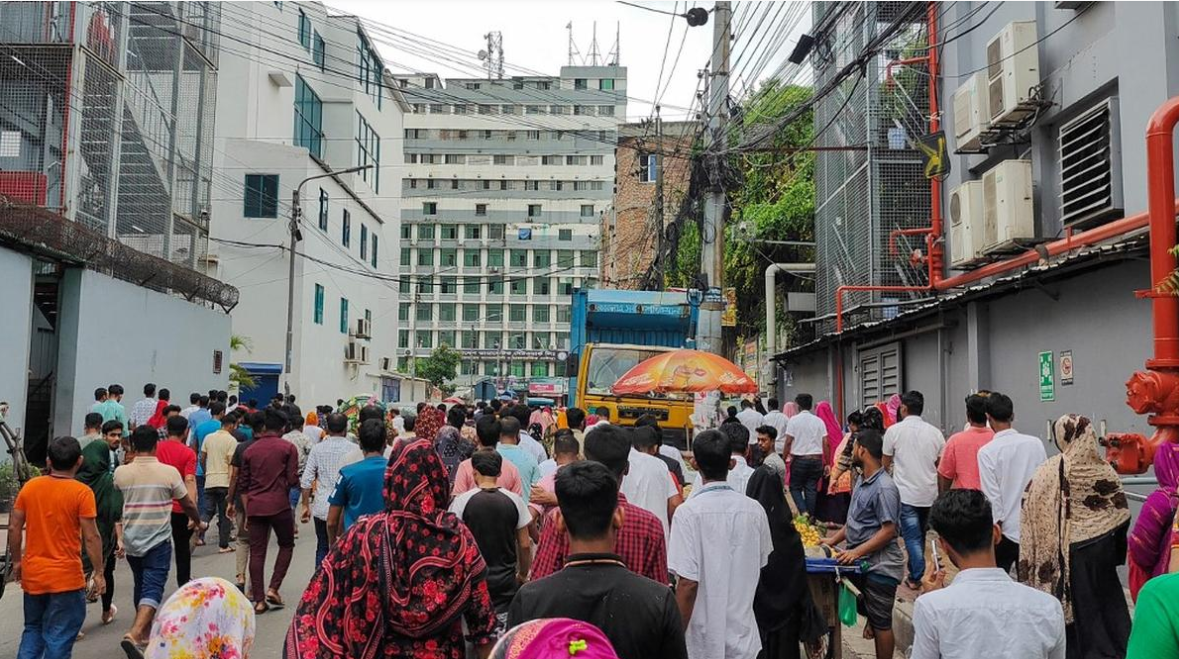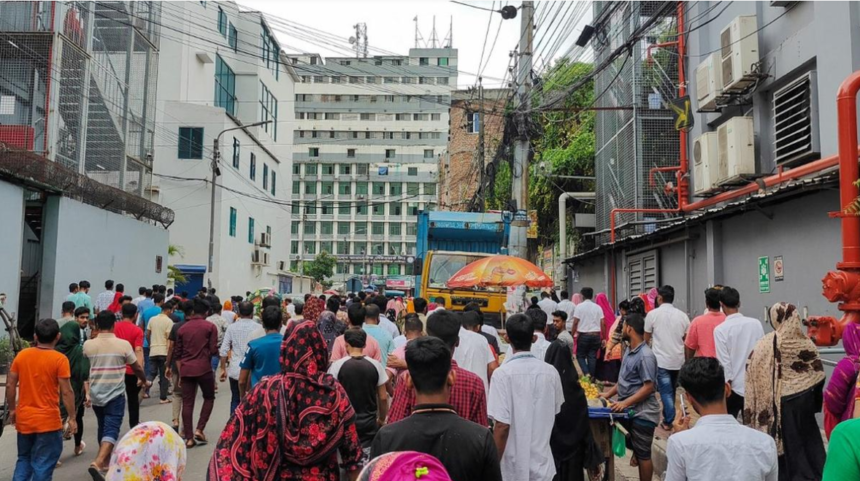Introduction
More Graduates Bangladesh, a nation that has seen impressive economic growth and significant strides in educational attainment, is now grappling with a growing crisis: a mismatch between the increasing number of graduates and the availability of relevant jobs. The situation has reached a boiling point, manifesting in widespread protests across the country. The decision to reintroduce a quota system in government jobs, amidst an already tight job market, has only intensified the unrest, particularly among educated youth who feel sidelined and frustrated by the lack of opportunities.
This article delves into the factors leading to these protests, examining the roots of the graduate employment crisis, the controversial quota system, and the broader socio-economic implications for Bangladesh.
The Educational Boom: A Double-Edged Sword
Over More Graduates the past few decades, Bangladesh has made remarkable progress in expanding access to education. The government’s commitment to education, along with various initiatives to promote literacy and higher education, has resulted in a significant increase in the number of graduates entering the job market each year. Universities and colleges have proliferated across the country, providing millions of young people with the opportunity to earn degrees in various fields.
However, this educational boom has also created a double-edged sword. While more students are obtaining degrees, the job market has not kept pace with this surge in educated individuals. The economy, though growing, has struggled to generate sufficient employment opportunities, particularly in fields that match the skills and aspirations of these graduates. As a result, a large segment of the educated youth finds itself either unemployed or underemployed, leading to growing disillusionment and frustration.
The Job Market Crisis: A Growing Disparity
The More Graduates disparity between the number of graduates and the availability of relevant jobs is at the heart of the current crisis. While Bangladesh has made strides in sectors like textiles, agriculture, and manufacturing, these industries often do not require the advanced skills that many graduates possess. The service sector, which includes information technology, finance, and education, has also grown, but not enough to absorb the increasing number of degree holders.
Moreover, many of the jobs available in the public and private sectors do not align with the qualifications and expectations of the graduates. For instance, the demand for engineers, IT professionals, and specialized technical experts far exceeds the supply of jobs in these areas. This mismatch has left many graduates in a precarious position, forced to either take up jobs for which they are overqualified or remain unemployed.
The problem is further exacerbated by the lack of adequate career counseling and vocational training programs that could help graduates align their skills with market needs. This gap between education and employment is a major contributing factor to the widespread dissatisfaction among the youth, which has now spilled over into protests.
The Controversial Quota System: Fueling the Flames
The reintroduction of the quota system in government jobs has added fuel to the fire. Originally designed to ensure representation for marginalized groups, including women, ethnic minorities, and those from rural areas, the quota system has long been a contentious issue in Bangladesh. Critics argue that the system, while well-intentioned, has outlived its purpose and is now contributing to inefficiency and resentment among those who feel it unfairly disadvantages them.
In recent years More Graduates, there have been calls to reform or abolish the quota system, particularly from educated youth who believe that it limits their chances of securing government jobs based on merit. The decision to bring back the quota system, even as unemployment among graduates remains high, has intensified these grievances. Many see it as a move that prioritizes social considerations over merit and competency, further diminishing their already slim prospects of finding suitable employment.
Protests against the quota system have been widespread, with students and graduates taking to the streets to demand fairer access to jobs. These protests have often turned violent, reflecting the deep-seated frustration and anger among the youth. The government’s response to these protests has been mixed, with promises of reform and dialogue, but little concrete action to address the underlying issues.
The Broader Socio-Economic Implications
The More Graduates current situation in Bangladesh is not just a crisis of employment but a broader socio-economic challenge that could have lasting implications for the country’s future. The discontent among the youth, who constitute a significant portion of the population, poses a serious threat to social stability and economic progress. If left unaddressed, this discontent could lead to increased social unrest, political instability, and a potential brain drain as educated individuals seek opportunities abroad.
Moreover, the mismatch between education and employment threatens to undermine the very progress that Bangladesh has made in recent years. The country’s ability to sustain its economic growth and development depends on its capacity to harness the potential of its educated youth. If the current trends continue, Bangladesh risks squandering this potential, leading to a loss of productivity, innovation, and overall economic dynamism.
Possible Solutions: Bridging the Gap Between Education and Employment
Addressing the graduate employment crisis in Bangladesh requires a multi-faceted approach that goes beyond mere job creation. The following strategies could help bridge the gap between education and employment, ensuring that graduates have access to relevant and rewarding job opportunities:
- Education Reform: There is an urgent need to align the education system with the demands of the job market. This includes updating curricula to focus on skills that are in high demand, such as digital literacy, critical thinking, and problem-solving. Additionally, promoting vocational training and technical education could help equip graduates with practical skills that are directly applicable in the workforce.

- Career Counseling and Guidance: More Graduates Establishing robust career counseling programs in schools and universities can help students make informed decisions about their education and career paths. These programs should provide insights into market trends, job prospects, and the skills needed to succeed in various fields.
- Public-Private Partnerships: Encouraging collaboration between the government, educational institutions, and the private sector can help create a more dynamic job market. Public-private partnerships could facilitate internships, apprenticeships, and on-the-job training programs that provide graduates with real-world experience and enhance their employability.
- Entrepreneurship and Innovation: Promoting entrepreneurship and innovation among the youth could create new avenues for employment. The government and private sector should support start-ups and small businesses by providing access to funding, mentorship, and resources. This would not only create jobs but also foster a culture of innovation and self-reliance.
- Reforming the Quota System: The More Graduates government should consider reforming the quota system to strike a balance between social equity and merit-based employment. This could involve revising the quotas to reflect current realities, ensuring that they do not disproportionately disadvantage any group. Additionally, transparency and accountability in the recruitment process are essential to restore trust among job seekers.
- Expanding the Service Sector: To absorb the growing number of graduates, Bangladesh needs to focus on expanding the service sector, particularly in areas like information technology, finance, healthcare, and education. This requires targeted investments, infrastructure development, and policies that encourage the growth of high-skilled industries.
- Promoting Regional Development: Addressing the regional disparities in employment opportunities is crucial. Developing infrastructure and industries in rural and underdeveloped areas can help create jobs locally, reducing the pressure on urban centers and ensuring a more equitable distribution of economic opportunities.
The Role of the Government: A Call for Action
The More Graduates government of Bangladesh plays a crucial role in addressing the current crisis. It must take proactive measures to create a conducive environment for job creation, skills development, and economic diversification. This requires a long-term vision and a commitment to implementing policies that align education with employment opportunities.
Additionally, the government must engage with the youth, listen to their concerns, and involve them in the decision-making process. This could include forming youth advisory councils, conducting public consultations, and creating platforms for dialogue between policymakers and the younger generation. By involving the youth in shaping the future of the country, the government can build trust and ensure that its policies are responsive to their needs.
The Way Forward: Turning Crisis into Opportunity
The protests in Bangladesh, sparked by the mismatch between graduates and jobs, should serve as a wake-up call for the nation. While the challenges are significant, they also present an opportunity to rethink and reshape the country’s approach to education, employment, and economic development.
By taking bold and decisive action More Graduates, Bangladesh can turn this crisis into an opportunity to build a more inclusive, dynamic, and resilient economy. This will require collaboration across all sectors of society, a willingness to embrace change, and a commitment to ensuring that every graduate has the opportunity to contribute to the nation’s progress.
Conclusion
The ongoing protests in Bangladesh over the lack of relevant jobs for graduates highlight a critical issue that demands immediate attention. The growing number of educated youth, coupled with limited job opportunities and a controversial quota system, has created a volatile situation that could have far-reaching consequences for the country’s future.
To address this crisis, Bangladesh must focus on aligning its education system with the needs of the job market, promoting entrepreneurship, reforming the quota system, and expanding the service sector. By doing so, the country can create a more equitable and prosperous future for its graduates and ensure that they play a central role in driving the nation’s growth and development.
The road ahead is challenging, but with the right policies and a collective effort, Bangladesh can overcome this crisis and emerge stronger, turning the frustration of today’s youth into the success stories of tomorrow. ALSO READ:- Sheikh Hasina Faces 33 Cases, Including Murder Charges, After Ouster from Bangladesh: A Complex Political Battle





